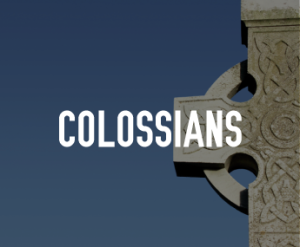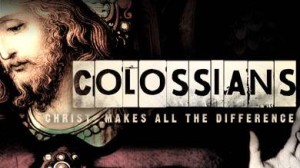 So today we begin a new four week series inspired by the book Flesh by Hugh Halter, and tied into a campaign that is attached to the book called 21 Days of Flesh. This series is about learning to live life like Jesus- really live like Jesus. Over the next four weeks we are going to be looking at questions revolving around the concept and idea and reality that Jesus took on flesh and blood and moved into the neighborhood. We are going to talk about what it means that Jesus became fully human. We are going to unpack what it means to be fully human. And we are going to share together what it means to be truly human just like Jesus.
So today we begin a new four week series inspired by the book Flesh by Hugh Halter, and tied into a campaign that is attached to the book called 21 Days of Flesh. This series is about learning to live life like Jesus- really live like Jesus. Over the next four weeks we are going to be looking at questions revolving around the concept and idea and reality that Jesus took on flesh and blood and moved into the neighborhood. We are going to talk about what it means that Jesus became fully human. We are going to unpack what it means to be fully human. And we are going to share together what it means to be truly human just like Jesus.
You see that is where so many of us get tripped up. We know in our heads that Jesus was fully human and fully divine, but we are more comfortable with the divinity of Jesus and we can’t quite wrap our heads around the human part. And we lose what it means to be fully human in our own world and then we in a way lose what it means to be like Jesus. And then we lose street creed because our words and rhetoric don’t line up with the life that we are living.
So let’s go back a bit into history, then we’ll go back even further, and we’ll end up the message in the present and looking to the future about how to “flesh” all this out. (pun intended)
So 80 years ago it seemed like around 80 percent of Americans were involved in church. In 1980 only 40 percent were. Today it is around 25 percent and by 2020 (6 short years away) less than 10 percent will be going to church, much less following Jesus. If we continue to be Christians like we are, and if we keep doing church like we are, we will be as unchurched as Europe, Canada, Australia or anywhere else in the west where people no longer look to Christians or the church for spiritual help. And this is why we need to have a serious look about what it means to follow Jesus. Why we need to have a serious look at what it means that Jesus was truly human and that if we follow Jesus that we’ll actually become more human and not less.
You see, in the video, Hugh Halter said something that maybe you caught or maybe you missed. He reminded us that Jesus came to earth to die for sins. That was huge and the most important single act that changed the world (just an aside is the resurrection apart of that??). But Jesus didn’t just come to die. He came to live a life that we can try to model ours after. No, we can’t die on the cross, but we can in fact live like He lived. As 1 John 2:9 says, “Whoever claims to live in him must walk as Jesus walked.”
So let’s get to the heart of the matter if you will, the incarnation of Jesus. In John 1:14 in the message we read these words, (which by the way are some of my favorite words in all of Scripture), “The Word became flesh and blood, and moved into the neighborhood. We saw the glory with our own eyes, the one-of-a-kind glory, like Father, like Son, Generous inside and out, true from start to finish.”
So in the book Flesh, which is the book that is our jumping off point for our 4 week sermon series, Hugh talks about a five step process or grid or flow of how Jesus moved into the lives of people. The 5 steps are incarnation (what we are talking about today), reputation/street cred (what we are talking about next week), Conversation, Confrontation (what we are talking about on May 11), and finally Incarnational Transformation (what we will finish on May 18). We start with incarnation because that is where Jesus started. He came to earth, moved into the neighborhood, got an apartment, etc.. He dropped into our world.
You could honestly say that Jesus was the most missional and incarnational person ever to walk the face of this earth. And you would definitely be right. You see missional when you break it all down just means simply to be sent, and incarnational means the posture and going in the way of Jesus. God knew that you couldn’t just talk about the Kingdom of God and what it meant to follow Him. He knew that we humans needed to see the Kingdom lived out in the flesh. After all isn’t that what the rest of John 1:14 is about? “We saw the glory with our own eyes, the one-of-a-kind glory, like Father, like Son, Generous inside and out, true from start to finish.” We needed to see someone enflesh the values, beliefs, and dreams of the Kingdom of God in order to truly understand it. Jesus, by taking on flesh and blood and moving into our neighborhood, helped us, the human race, move beyond disorientation. Move beyond disorientation away from the Kingdom to orientation towards the Kingdom. And if Jesus came to orientate people towards the Kingdom, shouldn't that also be our role as well, as followers of Jesus? That if we are to enflesh Jesus in our lives, and out into the world, than we should draw people, point people, and orientate them towards Jesus and the Kingdom. But therein lies the rub. You see so many times it seems like people get more disorientated and away from the Kingdom because of what they experience inside religion and through bad experiences with people who are supposed to enflesh Jesus in the world.
And so Jesus came with a heart not to covert but to adopt people into a family, where their false assumptions could be processed and where they could find the real God. John 17: Jesus is praying for His disciples, the world, and us. At the end of a very personal conversation between Him and the Father, He prays that we would be one just as He and the Father are one. Isn’t it interesting that Jesus didn’t pray that a new world religion called Christianity would begin, or that people would go to church or become Christians? He prayed that we would be brought into a relationship He had with His daddy. It wasn’t about puppet converts. It was about family, about relationship, about community. I once heard that God is not interested in prisoners, and this is an important idea for us to consider as we start an incarnational focus. The reason we are doing this as a church is not to grow our church with converts. We are doing this so that we get the heart of God for people and that we learn as a body how to be true kingdom family and invite others to be family with us, which allows people to see and experience the glory of God.
But what does it look like to enflesh Jesus in the world, or in other words be missional and incarnational? Well first of all if we are to follow Jesus, we need to start where he started.Let’s learn to drop into the lives of people. Jesus makes an interesting statement in Luke 12:34 about how we get a heart for something. He says, “Where your treasure is, there your heart will be also.” We often use this verse to refer to money and learning to trust God with our resources, but this concept is about everything. Jesus came to earth because He loved people. In order to get a heart for people, we have to start spending time with people.
Now, I know what you’re thinking: We love the idea, but we’re swamped and simply don’t have time for people. Hugh teaches that every person, no matter how busy, can be at least a part-time missionary. And that being on mission and living an incarnational life isn’t about adding anything to your schedule but instead learning that everywhere you are is a mission field. What you’ll find is that you and I are perfectly positioned to be with people if we just add a little intentionality to get a heart for people. Consider the idea of simply committing 3 of the 21 meals you eat each week to eating with a person who doesn’t follow Jesus. I wonder if that would not only change our hearts, but I wonder if it would change the orientation of those we eat with, and move that orientation slowly towards the Kingdom?
As I was writing this message I thought about 2 people (actually a family and a single) that I have relationships with. A family that lives in our neighborhood and a single who I bump into when he comes into this space on a regular basis. And so I reached out to the guy to see if he wanted to meet up for coffee. And I saw the family the other night, learned that they are going to be moving, and talked about having them over for dinner. Who might you grab coffee with or dinner with this week? Or what if you just changed how you eat your lunch at work?
This is what it means to enflesh and incarnate Jesus into the world. This is what Jesus teaches us to do. That’s what he invites us to do as we learn to live and walk as he walked. Can you imagine what could happen within this Veritas community if we all just gave even one meal a week to learn the story of another person? What would we look and feel like as a faith community if we all had a true heart for our friends to be a part of God’s family?
So before I wrap up with a few thoughts and questions for us to explore together I want to share something that I’ll be doing daily to help us better “Flesh” out Jesus and the Kingdom in the world. Every day I will post on our website/blog, send an e-mail, post on Facebook daily encouragements for us in regards to incarnational living. This devotionals and encouragements will hopefully encourage, challenge, and maybe even convict us to better enflesh Jesus in the world, and be a part of the orientation process for people to begin orientating their life towards Jesus and His Kingdom.
So let’s spend some time unpacking a little bit more what it might mean concretely for you to enflesh Jesus into your world. Who might God be calling you to be more intentional with as far as building a relationship, and helping with the reorientation process? Who might you grab coffee, lunch or dinner with this week that might not have a relationship with Jesus? And what does it mean to you that Jesus actually took on flesh and blood and moved into our neighborhood? Let’s look at these questions together.
1. What thoughts, comments, insights, questions, push back, etc.. do you have regarding the incarnation, the Scripture, and/or the message?
2. What does it mean to you that Jesus took on flesh and blood and moved into the neighborhood? Why does it matter to you and how does it affect your everyday life and existence?
3. Who might God be calling you to be more intentional with as far as building a relationship with? Who might God be calling you this week to grab coffee, lunch or dinner with?
4. What is God saying to you and what are you going to do about it? What is God saying to us and what should we do about it?













